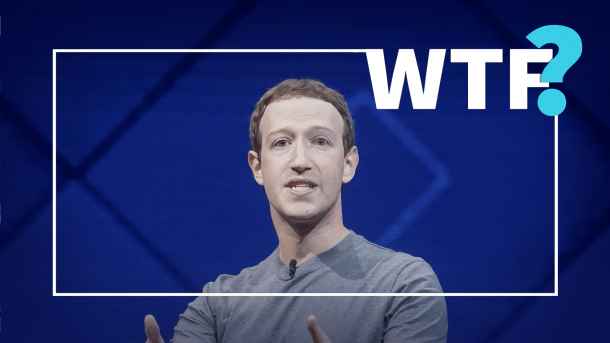Observers of the Facebook founder have been noticing a strange transformation from ascetic to trendsetter for months. Possible reasons: marketing – and politics

Zuckerberg’s old standard outfit wasn’t cheap either, but it looked ascetic.
(Image: dpa, Noah Berger/AP)
For many years, Mark Elliot Zuckerberg, co-founder of Facebook and current head of the parent company Meta Platforms, followed a simple philosophy when it came to his clothing: “I have to make so many decisions every day anyway, I don’t have to do the same with my clothes. The result of this fight against the so-called decision fatigue of many top managers: “Zuck” bought dozens of high-quality gray T-shirts (price: around 300 euros each) along with matching jeans and simply wore the look every day, sometimes complemented by his infamous Adidas slippers.
Only at hearings of the US Congress and other political occasions did he dress up, which often made him look as if he was wearing a confirmation suit. Zuckerberg’s hairstyle was similarly ascetic: it was shorn when the time came (so long) – or, on the aforementioned political occasions, he sported an alien-like ponytail shortly before his appearance.
From the pot hairstyle to the “hypebeast”
Fast-forward to May 2024: Zuckerberg has just turned 40 years old. He wears a hip oversized shirt with a fat gold chain to the birthday party. His curls are sticking out like a surfer’s. In another photo from the same year, the meta boss can be seen wearing an eye-catching blue watch, the De Bethune DB 25 Starry Varius, priced at just under 80,000 euros. And on Instagram, he shows himself more and more often in different, hip outfits, once with a smart 3-day beard, linen shirt, chain and certainly not a cheap Patek watch on his wrist because he apparently now also has a larger watch collection. But what made this middle-aged man suddenly mutate into a “hypebeast” with a shearling jacket? Newfound enjoyment of life and spending money – with a net worth of around 200 billion US dollars, there’s plenty to go around? Or are there other reasons for the change in style?
In previous years, Zuckerberg had already tried to improve his image and make himself more interesting. He announced that he wanted to learn something big new every year, whether it was the Chinese language, hunting animals and then eating them or building a home assistant with AI before chatbots were available. This was always accompanied by corresponding Instagram or Facebook posts. However, this was not really well received or was rather ridiculed. In terms of his look, Zuckerberg remained a nerd – even if he did challenge Elon Musk to an MMA fight meanwhile. But now he wears a sequin jacket to his wife’s disco party, as reported by the tabloid magazine People. Meanwhile, Slate analyzes whether “Zuck” might have suddenly become “hot”. “Looking good is just a question of your own abilities. Anyone can do it,” says venture capitalist Sarah Cone, who also works as a style consultant for Silicon Valley managers. The meta-CEO’s makeover has shown this. “He’s starting to look so cool. He’s the perfect example of someone that always looked really terrible but that wasn’t a native property of him.”
Makeover for political reasons
Now it doesn’t really matter how fashionable Mark Zuckerberg is. Other stars in the tech industry show off their naked torsos (Jeff Bezos) or talk about their personal meditation technique in podcasts (Satya Nadella). Even Zuckerberg’s former same-outfit-every-day strategy was actually copied from Steve Jobs, who in the meantime planned (fortunately unsuccessfully) to put all Apple employees in uniforms. But Meta is something else, because the operator of the world’s largest social network has an enormous influence on our lives, including politics. And it doesn’t hurt if the previously robotic boss suddenly seems likeable.
Meta and the Orion glasses: Greetings from another star
Alongside the charm and hipster initiative, Meta is reducing its intervention in content that could be problematic, possibly anticipating a new Trump administration. While the company was happy to help delete misinformation during the coronavirus pandemic, Zuckerberg has since admitted that he was pressured into “censorship” by the White House and said that he regrets not taking “clear enough” countermeasures. “I think the pressure from the government was wrong.” He also believes that Meta made some decisions “which, with hindsight and new information, we would not make in the same way today”. In practice, this means that Meta wants to concentrate on its core business of earning money with personalized advertising without becoming an arbiter of political alignments. No matter how you feel about it: The company can only do this if the boss is as apolitical as possible – and apolitical in this case also means mutating into a hipster. How successful the strategy will be remains to be seen. In any case, reporting on new “hot” outfits and other bells and whistles – Zuckerberg recently posted that he and his wife had bought white Porsches with special equipment – is a great way to distract from the topic.
